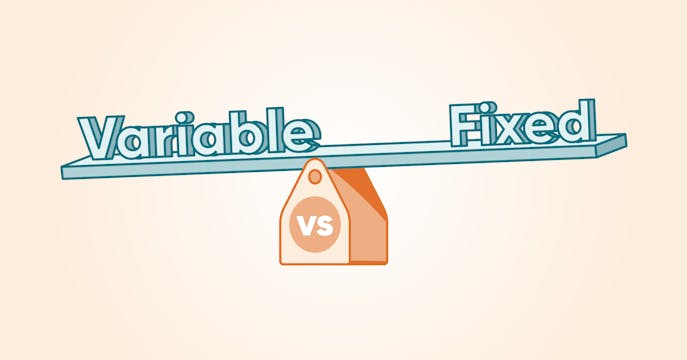Did you know? Since July 2023, we've endured a 5.0% BoC policy rate — a level not seen since March 2001. Dropping to 4.75% now, we last saw this rate in June 2023, and before that, back in January 2001. (Higher rates sure have a way of coming together!)
It's mid-year. The first rate drop is here!
Policy rate lowered by 0.25% to 4.75%.
Let's take a look at what this first Bank of Canada rate cut in a while could mean for your home affordability.
No longer a 23-year high.
Time to let out a sigh of (rate) relief.
Bank of Canada makes its move, easing down its overnight benchmark (the policy rate which affects most other rates):
- Policy rate now 4.75%
- Most bank prime rates will lower to 6.95% (from a high of 7.20%)
Let's take a quick look at what this central bank policy shift could mean for buying a home, or renewing or refinancing your mortgage.
Plus, are more rate drops coming??
The impact on variable and fixed mortgage rates.
Variable rates float and change along with bank prime rates. Bank prime rates are directly impacted by the BoC policy rate. Whenever there's a policy rate change, banks typically follow it (very rarely, a bank may disagree with the change and hold stubbornly, but that definitely won't happen today).
After today's rate drop, your variable rate for your mortgage or HELOC will post lower by 0.25%, and you'll likely see the downgrade as soon as your next mortgage payment.
Fixed mortgage rates have already decreased ahead of this anticipated interest rate stop, though this event may spark additional easing.
Keep in mind that fixed rates are pushed around by the bond yield market (not directly set by the BoC policy rate like variables are), which can react to emerging economic data, especially in times of economic volatility (like now). So you may see fixed rates go up slightly or down during any given week.
The variable-fixed rate spread is inverted. Right now, a 5-year variable rate is higher than most fixed rates. That's not the norm. Typically, a variable rate is lower than most fixed rates and lower than a 5-year fixed rate by a 'normal' spread of 0.25% to 1.0% due to the increased risk for change (this spread increased to 1.5% during the pandemic!).
So, there's more downward movement to come in variable rates than in fixed rates.
How will a lower prime rate affect:
Your home purchase?
Lower mortgage stress test for a variable rate. If you prefer a variable rate, your required stress-test rate — which pretends your contract rate is 2.0% above your contract rate (or a minimum of 5.25%, whichever is greater) to see if you can still afford the payments — will now be 0.25% lower, which could help your affordability numbers in getting mortgage approval.
Lower payments now, renew into lower rates later? We have another option if you're buying a home, depending on your circumstances. Check out the lowest fixed rate in Canada — our Rate Relief™ product which offers a budget break for 6 months. This product could allow more time for rates to decline, and you could renew sooner into lower market rates compared to choosing a longer term.
Your mortgage payments?
- If you have an adjusting payment variable-rate mortgage (ARM), your payments will go down. For example, for a $500K mortgage with an original 25-year amortization, going from a variable rate of 5.99% to 5.74% will save you about $74 per month.
- If you have fixed payments (VRM), your amortization will start to tick down. That's good news if you've been nervously watching your amortization increase during the rate-hike cycle, and are worried about your upcoming renewal.

What about your mortgage renewal?
If you need to make a renewal decision imminently, this first drop may instill some confidence that variable rates may finally be heading down the high-rate mountain.
Choosing a variable rate for your next term means that with each policy rate decline, you would see instant budget relief, versus locking into a fixed-rate term now and having to wait until your renewal (unless you decide to break your mortgage for a lower rate).
Many homeowners are still preferring short-term fixed rates, with the 3-year term at the head of the rate pack. Will this first-rate drop see more interest in a variable-rate term?
One rate cut in hand, are more on the way?
The start of a rate-cut cycle usually comes amid economic slowing, and more cuts are likely on the way. However, the pace and amount will depend on the cooperation of many factors, such as cooling inflation, the job market, and even U.S. economic strength. Keep up with the numbers and our ongoing mortgage rate forecast here.
We live and breathe your best rates.
Despite this welcome first cut, rates are still higher, especially for those renewing from the lower-rate days. (Get a friendly renewal reminder here for when it's your time to save on your next term.)
Our expert, salaried brokers have the access, volume, know-how, and putting-you-first muscles to flex in working out your best mortgage rate and solution — whether your financial details are straightforward or more complex (like, non-traditional income sources or less-than-perfect credit).
Give us a shout to breathe life into your mortgage budget and experience. Anywhere you are in Canada, a few minutes could save you thousands — online, over the phone or email, or stop by a store near you.
Get exceptional service for stress-free savings.
Take in more great advice

2025 Mortgage Rate Forecast
Continually updated. Are rates going down or up in 2025? Get insights from CEO Dan Eisner into… Learn More

Housing Market Forecast
Continually updated. Get an idea of the housing outlook and interesting deets without combing… Learn More

Should you choose a variable rate in 2025?
How to decide between variable-rate FOMO or JOMO? We can help.
Learn More
